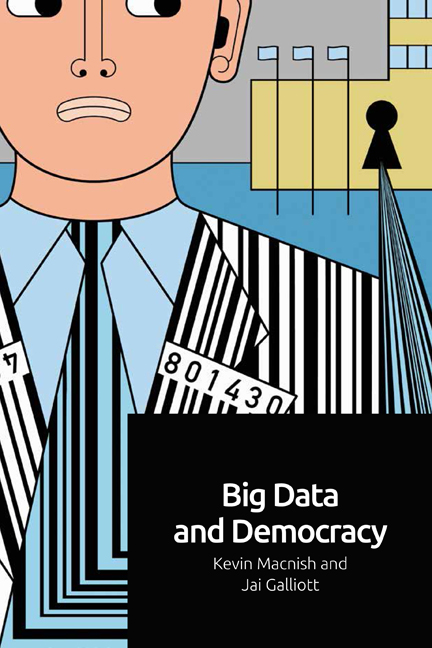Two - Politics, Big Data and Opacity Respect
Published online by Cambridge University Press: 17 October 2020
Summary
Introduction
The future is here, and it is not hoverboards, space travel or simian rule. It is data analytics. The combination of masses of information and computer processing power is set to revolutionise our approach to just about everything. Algorithms will allow us to harness all this raw data to better understand human behaviour so that we can devise ingenious solutions to problems as diverse as falling voter turnout and climate change. ‘Big data’ thus promises enormous benefits. However, in this chapter I want to raise a serious problem that should give us pause. I shall argue that governments and other political actors have special reason to avoid using algorithms to ‘look inside’ us. This stems from an influential answer offered to the question: what is the basis of equality ?
It is readily apparent that some people are physically stronger than others, or cleverer, or nicer, or prettier, and so on. Even when it comes to more abstract abilities, such as judging what is in our self-interest or how best to pursue one's particular conception of the good, some are better than others. It seems that in any dimension of human ability we can locate people at different points along a spectrum. But if we differ so markedly in our natural capacities, then what are we to make of the idea that there remains some important sense in which we are all equal, and so entitled to equal treatment? Ian Carter (2011) has argued that there is one crucial respect in which we are all the same, and that this explains why, and how, we are to be respected as equals. His thought is that we all have an interest in being able to conceal or cover up aspects of ourselves in order to maintain a level of outward dignity. Carter argues that our default position towards one another should thus be one of ‘evaluative abstinence’, in which we refrain from making judgements about how good or bad our fellows are at being agents. This is what it means to show each other what he calls ‘opacity respect’.
- Type
- Chapter
- Information
- Big Data and Democracy , pp. 27 - 41Publisher: Edinburgh University PressPrint publication year: 2020



